
Be prepared for home medical emergencies
Feeling better fast means keeping over-the-counter medications on hand for digestive woes, fevers, aches, and pains, as well as common first aid supplies. Here’s what you need to keep stocked in your home.
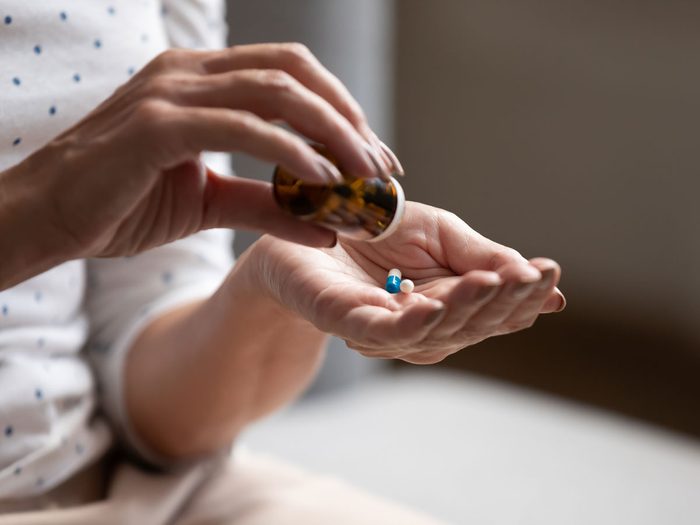
Pain meds that you can count on
“Acetaminophen and ibuprofen are staples in our house,” explains Mary Bridgeman, PharmD, BCPS, BCGP, clinical associate professor at the Ernest Mario School of Pharmacy at Rutgers University in Piscataway, New Jersey. And although these medications may be over the counter, Bridgeman cautions that people should still be wary for these reasons:
- Avoid ibuprofen if you have kidney problems or stomach ulcers.
- Monitor acetaminophen usage as it can cause liver damage.
- Follow proper dosage for age and weight when administering to children.
- Be aware that adult products may not be suitable for children.
- Double-check with a doctor or pharmacist first if you have any questions.
(Psst: These anti-inflammatory foods can also help to nourish your body, stop pain, and ease painful inflammation.)
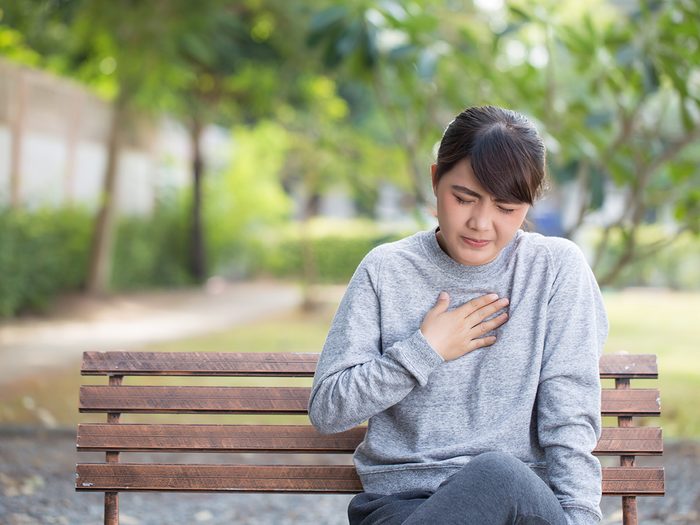
Don’t feel the burn
Heartburn is a common complaint with easy remedies. Bridgeman recommends Tums or Rolaids: They contain calcium and can help alleviate that burning sensation. However, if you need faster relief she suggests a liquid, since your body can absorb liquids faster than a tablet. Try Equate, which contains a gas-relieving ingredient known as simethicone.
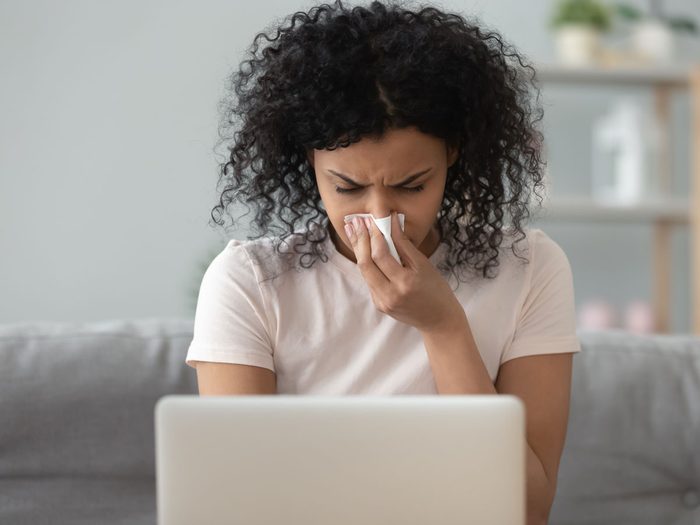
Spring fever
If you have allergies, an intranasal steroid like Flonase is Bridgeman’s go-to. “They’re shown to have fewer adverse side effects compared to an oral antihistamine or other products for allergies,” she says. “However, selecting the best allergy-relief medication is based on the patient and the symptoms.” A doctor or pharmacist can help guide in the decision-making process.
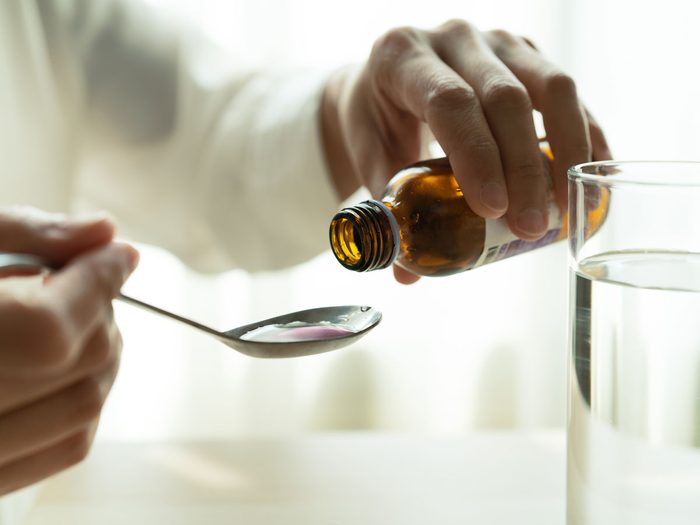
Stifle that cough
The type of cough you have will determine how you should treat it. “Cough medicines containing guaifenesin can be used to help bring up mucus and loosen phlegm,” explains Bridgeman. “Medicines containing dextromethorphan are best for a dry, non-productive cough to help suppress the cough reflex.” Some options include Robitussin and Nyquil.
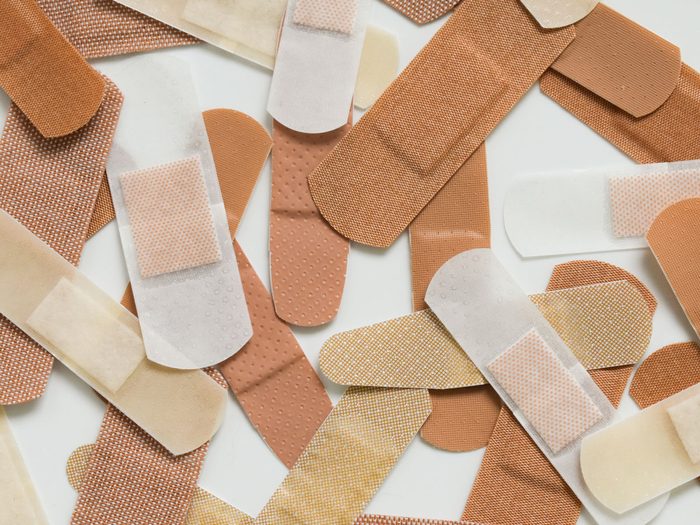
First aid to the rescue
For basic injuries, you’ll need a few things: “Alcohol, triple-antibiotic ointment, Band-Aids, and topical anti-itch creams containing hydrocortisone are must-haves for those minor cuts, scrapes, and bites that happen periodically,” notes Bridgeman.
And take note, says Bridgeman: Unlike tablet and pill medications, these basic first aid supplies are the only ones you should store in your bathroom medicine cabinet. “Temperature swings and humidity can influence the integrity of tablets and pills. They are best kept in a cool, dry place out of the reach of children. A kitchen cabinet works well,” she says. (These are the secrets your pharmacist isn’t telling you.)

Banish belly troubles
Well-known for its familiar pink colour, Pepto-Bismol can alleviate a variety of stomach ailments. (Note: For kids younger than 12, consult with a doctor first.) If your kids have diarrhea, oral rehydration solutions can help replace fluids and nutrients while you wait for their tummy time to settle.
Also, stay away from sports drinks to rehydrate. “Many people with diarrhea might reach for an electrolyte-containing sports drink, but these contain sugar and carbohydrates that can actually exacerbate diarrhea by causing an osmotic effect which draws fluid into the intestines,” says Bridgeman. “Oral rehydration solutions contain the electrolytes without the extra sugar, which makes them desirable for preventing dehydration.” (Check out the most effective natural home remedies for diarrhea.)
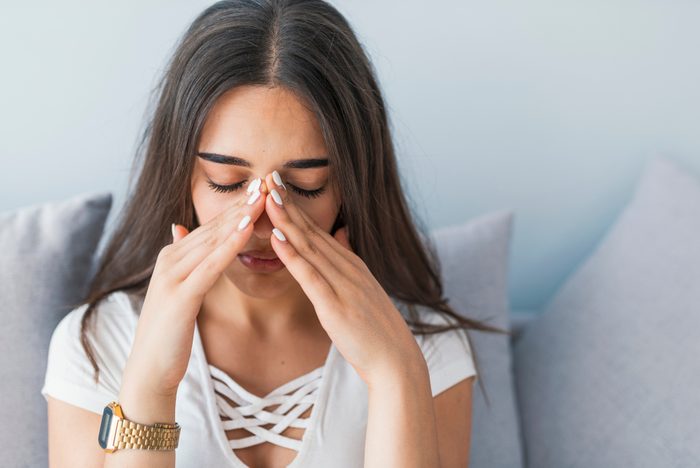
Can’t stop sniffling
You don’t have to suffer from a runny nose and clogged sinuses. Bridgeman likes starting with an all-natural option: “Keep intranasal saline on-hand, a salt solution that can alleviate nasal congestion and doesn’t cause side effects,” she says. She also likes the saline rinse for nasal allergy symptoms, as well.
Bridgeman is also a fan of nasal strips, like Breathe Right, which physically open up nasal passages and provide relief from congestion, without drugs.
(FYI: These are the worst Canadian cities for allergies.)
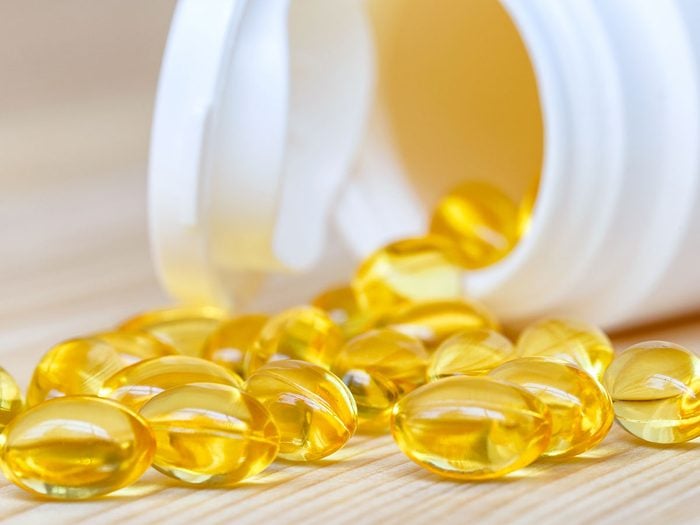
Say yes to supplements
There are tons of vitamins on the market. Before spending your hard-earned cash, consult with your doctor about your potential needs. Marianne Corso, RPh, at Jersey Shore University Medical Center in Neptune, New Jersey, recommends taking a B Complex and vitamin D each day. “For vitamin D, I take D3 in 5000 units, and I feel both are good replacements for a multi-vitamin.”

Feeling run down
If you feel like a bug’s coming on, consider popping some Airborne or Emergen-C to be safe. “I like having Airborne at the ready,” says Corso. “It’s good to take if you start to feel a little run down or feel like you are coming down with a cold. It’s a vitamin boost.”
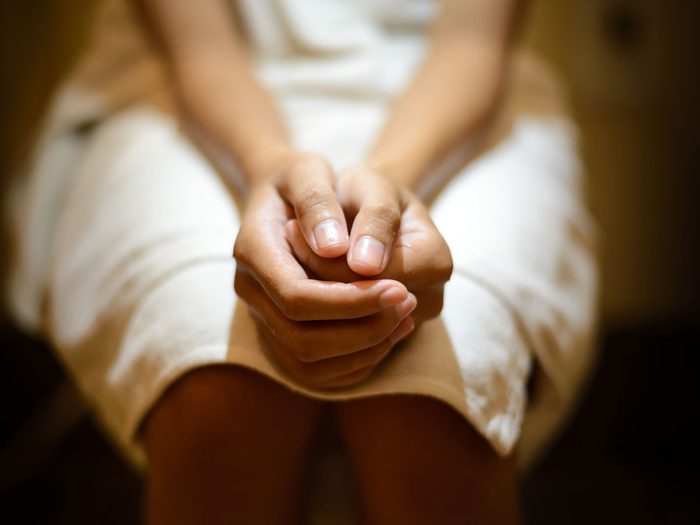
Don’t scratch that itch
When fungal infections like athlete’s foot, jock itch, ringworm, and vaginal yeast infections have you at your wits end, be ready: “There are a number of different formulations (powders, creams, sprays) that contain anti-fungal medications that can be used for treating these conditions if they arise,” explains Bridgeman.
For athlete’s foot, you could try Lotrimin; for vaginal yeast infections, consider Monistat. Just make sure to complete the total time for treatment that’s indicated on the product’s packaging or your infection will come roaring back.

Too much fun in the sun
Were you having such a good time at the beach, pool, or baseball game that you forgot to reapply your sunscreen? To soothe redness and discomfort, apply a product containing aloe vera to help relieve topical symptoms. However, if you have a particularly bad burn, Bridgeman recommends getting a preparation that contains lidocaine for an additional cooling effect.
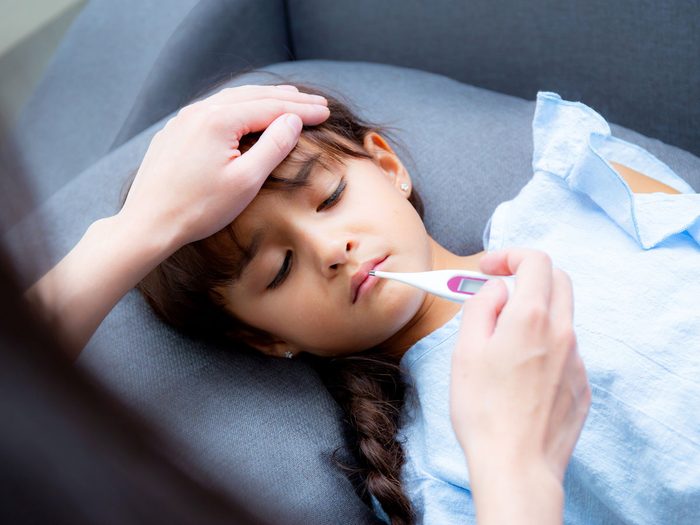
Tools of the trade
Putting your cheek to your little one’s forehead might be a trick for telling if your child has a fever, but a more accurate tool is the trusty thermometer. The newer digital models are inexpensive and reliable.
Tweezers can also come in handy—beyond plucking eyebrows. You can tackle splinters and ticks with a good pair.
Next, learn what essentials you should keep in your first-aid kit at home.
